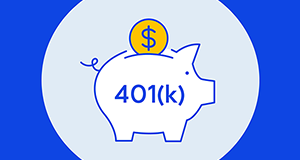How to Get Help With Medical Bills

Summary
Medical bills can add up quickly, but there are ways to manage them more easily. Learn how to get help covering the costs to ease the burden.
In this article:
Medical care can be expensive — and costs can pile up before you know it. Even if you have health insurance coverage, you might find yourself staring down at a surprisingly large bill.
If you’re feeling overwhelmed, you’re not alone. Below are some ways to get help with your medical bills and find a little breathing room.
Request an itemized bill
Billing errors happen. That’s why the first thing you should do is request an itemized bill from your provider to make sure all charges are correct. Check your bill carefully to see whether you were charged for services you didn’t receive or were charged twice. If you find an error, call your provider and insurer to ask for an explanation.
Negotiate the costs of your medical bills
Some providers allow you to negotiate your medical expenses. Also known as charity care, federal law mandates that nonprofit hospitals offer financial assistance. Eligibility requirements vary by state and hospital and depend on your income and family size. While for-profit hospitals aren’t required to help, many do.1 No matter your income, it doesn’t hurt to ask. Since charity care often operates on a sliding scale, you could still get your bill reduced even if you aren’t sure that you qualify.
It can also help to research the fair market price for the care you received. Companies like FAIR Health collect data from billions of health care claims and make it easy to compare what you have been charged to what others have paid.2
Once you have the information you need, contact the billing department, explain your financial situation and try to negotiate a lower payment. You can also use this as an opportunity to ask about payment plans.
Request a payment plan
Paying your entire bill at once may not be an option. If this is the case, ask your provider about payment plans. A payment plan can allow you to pay off your medical debt in installments, and the amount you pay each month may be negotiable.
Before you agree to a payment plan, be sure you understand the following:
- Any fees or interest charges involved
- How long the payment plan lasts
- Penalties for early repayment
Make sure all terms are provided in writing.
Tap into your emergency fund
Rainy day fund. “Oh no” fund. Emergency funds have a lot of names but exist for one reason — to pay unexpected expenses. If you have one in place, some hospital bills might qualify as a reason to make a withdrawal. If you don’t already have this backup system in place, start an emergency fund to help with future expenses.
Consider a personal loan to pay your medical bills
You can use a personal loan to cover various expenses, including medical debt. With a personal loan, you can pay off some or all of your medical bills upfront and repay the loan over time in predictable monthly payments.
While you could use a credit card to pay medical bills, it may take much longer to pay off your debt — especially if you’re making only the minimum payment on your card each month.
A OneMain medical loan features a fixed interest rate and fixed monthly payments, so you can pay your medical bills right away and have a clear, predictable path to paying off your loan while you recover.
Need help paying medical bills? See if a medical loan from OneMain is right for you. A OneMain Financial loan specialist can discuss your options and help you find a loan that works for your situation.
Research government programs
A variety of government programs help pay medical bills and other expenses. USA.gov lists several options for getting help with medical bills.
If you don’t have insurance, you might see whether you’re eligible for government options such as:
- Medicaid: Medicaid provides free or low-cost health coverage to qualified individuals, families, older adults and those with disabilities who cannot afford health insurance or don't get it through their employer.
- The Children’s Health Insurance Program (CHIP): CHIP is an expansion of Medicaid that provides health insurance coverage to children of qualified households with limited income.
- Social Security and Medicare: Local Social Security Administration (SSA) offices assist those on Social Security and Medicare with medical costs. People over 65, people under 65 with disabilities, and people with end-stage kidney disease are eligible for Medicare.
Take the pain out of paying medical bills
Getting stuck with a large medical bill can be frustrating and scary, often triggering stress and impacting mental health when you already have so much to worry about. If you get hit with a medical bill beyond your budget, remember you may have options to lower the costs and pay the balance off in a healthy way that works for you.
Sources:
- https://www.consumerfinance.gov/ask-cfpb/is-there-financial-help-for-my-medical-bills-en-2124/
- https://www.fairhealthconsumer.org/
This article has been updated from previous postings in 2021. Jessica Leshnoff and Kim Gallagher contributed.
This article is for general education and informational purposes, without any express or implied warranty of any kind, including warranties of accuracy, completeness, or fitness for any purpose and is not intended to be and does not constitute financial, legal, tax, or any other advice. Parties (other than sponsored partners of OneMain Financial (OMF)) referenced in the article are not sponsors of, do not endorse, and are not otherwise affiliated with OMF.



